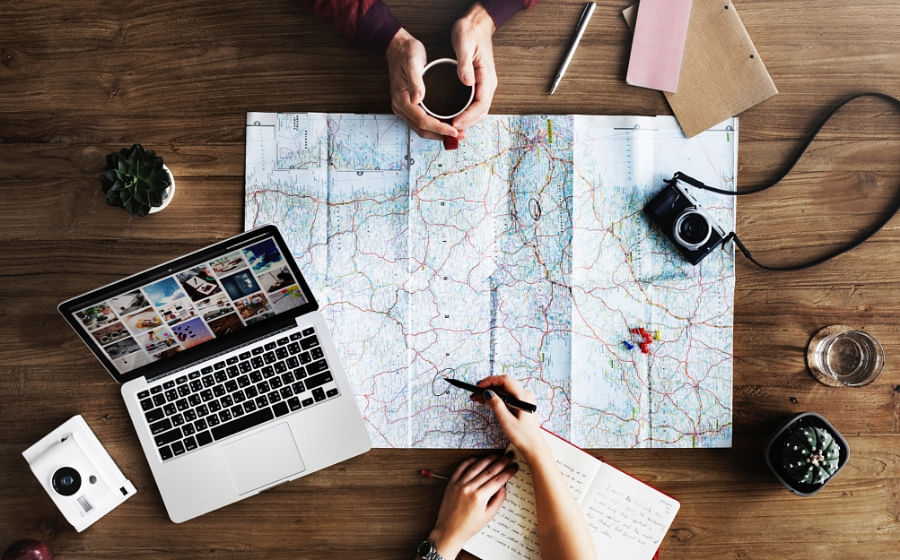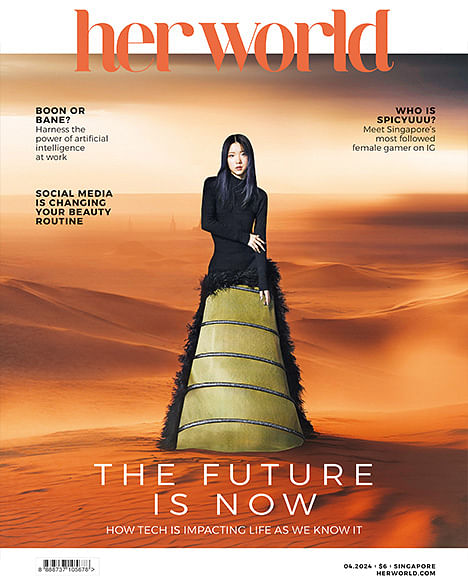
Photo: Unsplash
The travel gods have been good to the little red dot. The Singaporean passport ranks as the second most powerful passport in the world according to the 2018 Henley Passport Index.
It allows us unparalleled visa-free or visa-on-arrival access to 189 destinations, and so today, it’s only myths and outdated mindsets that prevent us from fully enjoying the travel experience. Here, travel junkies speak out about common issues that surface when one is planning a trip abroad.
India? Unsafe for female travellers. Iran? Terrorist territory. China? Fake food!
Thanks to social media, some places get a really bad rap, but don’t let stereotypes wipe a whole country off your list. India’s notorious rape rates have actually been dropping over the decade.
And guess which countries ranked pretty high in 2017? England, the United States and Sweden (surprise!). This shows how coverage manipulates our perceptions. Just ask Aileen, a 30-year-old counsellor who travelled solo to Iran.
“It’s unsafe for women everywhere,” she says honestly. “But there are kind and amazing people everywhere, too. Allow your sensibilities to guide you.” For example, Amritsar in India demonstrates great respect for women, and quick research will attest to that.
Remember what they say about music? It’s the same with a smile, which can help transcend any barrier.
In any country and in any city, flashing your pearly whites helps immensely to overcome language gaps. “People are inherently social beings, which means we are good at understanding each other even when we don’t speak the same language,” says Aileen.
“Kind smiles and words can always be felt and are our best communication tools.”
Vik. Jiufen. Alnwick. What do these places have in common? They are often recommended as day-trips out of larger city destinations. This is actually a real pity. While these locations are generally known for one tourist site, they actually do offer a lot more if you spend a few days uncovering their secrets.
I had the pleasure of camping in Jiufen for three days, after other tourists had left. This allowed me to experience the place without the tourists, observe shop-owners setting up, and catch spectacular night views of the town I would otherwise have missed.
And because I was one of the few who bothered to linger for more than a day, many locals took an interest to my presence, and I even made some new friends.
Make a tourist site your own.
Notice how everyone’s photo of the Taj Mahal or Angkor Wat generally looks the same? That’s because people forget that they are here for an experience, and not just to document a perfect picture.
When you realise this and start to really explore based on your own perspectives and what’s in front of you, you’ll start creating a different experience for yourself, which is all the more meaningful.
Opt for alternative routes even though they may seem less popular. I climbed the Eiffel Tower instead of taking the lift, and got a whole new view of the monument.
Don’t get me wrong. Food is an important aspect of every culture. But that doesn’t mean you have to try every dish the place is famous for.
During a trip to Iceland, I saw a few tourists trying hakarl (fermented shark) while some locals giggled nearby. When asked, they confessed that Icelanders don’t actually eat this (and haven’t for a long time).
On another trip to Hong Kong, a friend was so obsessed with finding and trying every snack and piece of dim sum that he ended up missing out on seeing the local sites. True story.
It seems like the “brave” thing to do, and the biggest obstacle to solo travel is the fear of being stranded, being bored out of your mind, or even feeling lonely during the trip.
But there’s something about solo travellers that seems to attract locals (and other travellers). I’ve lost count of the number of times people have asked me if I was by myself, and then invited me to sit down with them and have a chat at the local coffee shop.
You’ll find no lack of like-minded and curious folks on the road. And if need be, visit nearby hostels — their public areas are often meant for safe socialising.
Let’s get this straight — there are places that are expensive, but there’s also almost always a way around it.
From an extensive budget flight network to the rise of Airbnb and Couchsurfing, someone who knows how to plan can find a trip for their budget. As flights and accommodation are the biggest factors that eat into travel expenses, buying tickets and rooms early can save you plenty.
As for the trip itself, Anders Lee, who’s been to places like Uzbekistan and Georgia, advises that “the trick is, know yourself and save on the things that matter less to you and spend on whatever thrills you”.
The days of cruise ships crawling with retirees are over. No longer the realm of gamblers and families, cruises are now for adventurers too!
In some cases, a ship is the only way you can comfortably visit a place like the White Continent of Antarctica. No natives, no politics, no economy — it’s pristine wilderness. Lindblad Expeditions even bundles you away with National Geographic representatives, from photographers to scientists, to help deepen your knowledge of your destination.
Oceania Cruises also recently announced its epic 180-day voyage around the world. In Jan 2020, you can check four continents and 38 countries off your list. “Travel is meant to be life-changing and that was our goal when we set out to chart this most monumental of world voyages,” said Bob Binder, its president and CEO.
“Don’t fully rely on a destination review site for your planning. It may not accurately reflect the best spots in that place,” says Chris Tan, 42, who makes at least 20 overseas trips a year for work and leisure.
A quick check on popular site TripAdvisor confirms this. Often, its recommended top 10 restaurants don’t feature local food, and the top local listing is uneven at best.
While these travel sites do promise an unbiased aggregate of a country’s offerings, paid reviews and tourist bias may throw reality off. To balance out suggestions, Ng says to look for recommendations by local bloggers or on travel forums instead.
Blame it on our education if you will, but Singaporeans have a habit of ticking off to-do lists.
“For attractions, be aware of what you like — you do not have to check off any list,” says Anders.
Knowing your preferences allows you to focus on a site and give you more time to fully enjoy the experience of the place, rather than fulfilling some Instagram quota for your journey. Travel is about expanding your world view your way, and shouldn’t be about hitting a list of sights that matter more to an audience than yourself.
ALSO READ: ICELAND’S AURORA BOREALIS AND MORE: 9 BEST TRAVEL DESTINATIONS TO HEAD TO IN 2019

